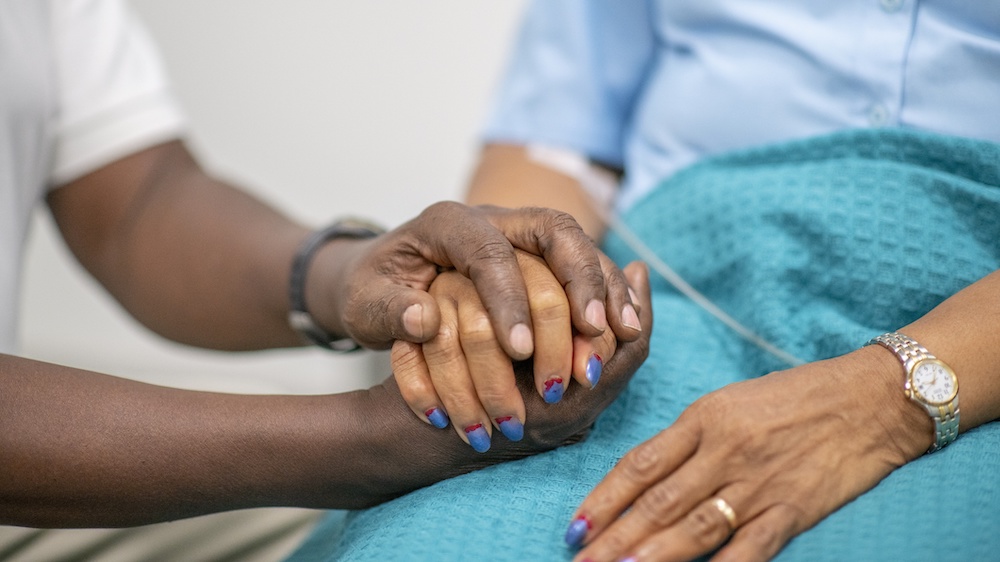If you’re interested in sharing your opinion on any cultural, political or personal topic, create an account here and check out our how-to post to learn more.
____
While the news of coronavirus-related “revelations” of systemic, structural inequities within our health care system is hardly a surprise to anyone in the Black community, the new numbers released this month are nonetheless staggering. In response to mounting pressure from Black community leaders and members of Congress, the Centers for Disease Control and Prevention finally released racial data on COVID-19 cases and deaths. Even the limited 14-state sample revealed an alarming snapshot of just how vastly disproportionate the devastating impacts of the virus have been for the Black community: 33% of coronavirus hospitalizations were of Black patients, despite Black people making up only 13% of the U.S. population.
This aligns with the incredibly stark numbers already reported by a constellation of cities and states in the weeks prior. In Milwaukee, where 26% of the population is Black, Black people accounted for nearly half of confirmed COVID-19 cases and more than 80% of the reported deaths there. In Louisiana, about 70% of the state’s coronavirus deaths were Black patients, despite making up only a third of the state’s population. And in Chicago, 70% of the coronavirus deaths were Black people, a demographic group that makes up 29% of the city’s total population.
These statistics are further evidence of what we already know: while the virus itself may not discriminate, the pandemic and resulting public health crisis have exposed and exacerbated all of the ways in which our government and public institutions, as well as economic and health care systems, oppress communities of color — especially Black people.
One potential cause of the disproportionate harm done to Black communities by the coronavirus is the overrepresentation of Black women and men employed in low-wage shift work or service industry jobs that are unlikely to offer benefits like affordable health care, childcare and paid leave. According to a recent Joint Economic Committee report from the U.S. Senate, only 44% of low-wage workers have access to paid leave including sick days, family leave and vacation. Those who are not laid off continue to work at great personal risk, with Black people more likely to use public transportation when traveling to work and more likely to work in a job that cannot be done from home. Low-wage service workers — largely women of color — are the unsung heroes of the pandemic, keeping our society and economy running by showing up each day to work as grocery store clerks, home caregivers, maintenance or sanitation workers and in other essential roles that put them at increased risk of exposure to the virus.
We know that Black women and families already suffer from inadequate access to affordable, quality health care, with 11% of Black people uninsured, compared to 8% of white people. Black people also have higher rates of diabetes, hypertension and heart disease than their white counterparts. All of those diseases put people who contract the coronavirus at higher risk — including higher rates of death.
Perhaps more importantly, Black women in particular suffer from the racism baked into the health care industry. The mistrust of the health care system by many in our community is based on our lived experience. Health care professionals not only ignore us when we need help, but, have in the past, experimented on us while searching for cures. When a COVID-19 vaccine is available, some Black people will be suspect and thus, may refuse it. That assumes that Black communities will actually have access to a future vaccine.
Black communities already are suffering the devastating effects of lack of testing and other resources, as well as implicit biases on the part of health workers standing in the way of accessing the limited health care resources that are available. In fact, one study suggests that when Black people with coronavirus symptoms do seek medical care, doctors are less likely to refer them for testing compared to non-Black patients with similar symptoms.
As Congress, the administration and state and municipal governments work to address this pandemic, in addition to improving and expanding racial data transparency, it is incumbent upon them to make special provisions for Black women, families and communities in their response and relief efforts. But we must not stop there. The government must ensure that all those who regularly are pushed to the margins of society, especially communities of color, are given the extra resources they need to survive.
We must come together as a nation to demand basic economic and social programs and resources — like access to affordable health care, paid leave for workers, safer working environments, food and housing security and investing in low-income and historically oppressed communities — that strengthen and support all workers, families and communities, in times of both crisis and calm.
COVID is killing us at higher rates; we demand that public health officials and elected leaders respond by providing more resources and programs to save our lives.
____
Marcela Howell is the founder and president of In Our Own Voice: National Black Women’s Reproductive Justice Agenda. You can follow her work on Twitter at @BlackWomensRJ.
